Tehran's relations with Brussels and the continuation of negotiations with them, as well as consultations with Russia to reduce the economic and currency turmoil in the country, to deal with unilateral US sanctions and to facilitate the delivery of energy can be analyzed within the framework of the concept of "Prisoner's Dilemma".
The JCPOA and the US withdrawal from this agreement has kept Iran in captivity. The Islamic Republic of Iran should be considered a prisoner facing various charges from the United States. Charges like the 12-year statement issued by Pompeo, the Foreign Minister of the U.S., to Iran; charges such as the crisis in Yemen, Syria and Lebanon, missile and regional activities and support for terrorism.
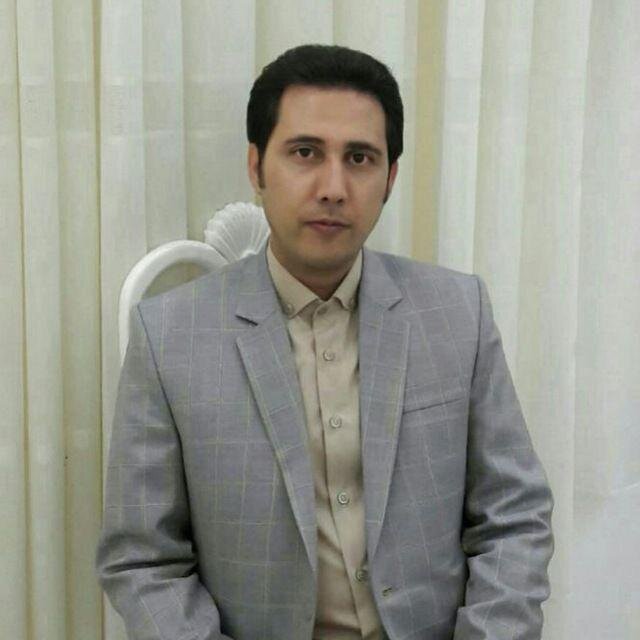
Dr. Velayati's visit to Moscow and his concurrence with Netanyahu's trip to the country, as well as the Iran President's visit to Europe to negotiate with Austria and Sweden, and European talks of Mr. Zarif and his assistants in the foreign ministry, resembles the idea of prisoners and their attempts to escape from prison.
Each of the parties in the JCPOA pursue their maximum interests.
With the withdrawal of the US from this agreement, Europe must either continue to pursue the JCPOA and cooperate with Tehran and, consequently, lose maximum interests in relations with the United States, or elect Washington and comply with its legal and political obligations under JCPOA, which have been the result of years of negotiation and bargaining. And in this case will lose a lot of its economic interests in Tehran.
Russia, as another party in the JCPOA, will lose its maximum interest in the United States if it chooses Tehran, and faces more serious crises.
If Tehran tend to negotiate with the United States or surrender to Washington, it will get rid of the prisoner's dilemma. Russia, in the end, will lose the prospect of continuing the game.
Russia's cooperation with Netanyahu and Trump on Syria, trying to pull Iran out of Syria, shutting down Iranian military bases in the country, agreeing on missiles issue and stopping the sale of strategic missiles to Tehran, as well as cooperating in Iran's sanctions, will bring more benefits to Moscow. These are tempting interests. The benefits like the permanent deployment of Russian military bases and the guarantee of US exit, privileges in the Ukrainian crisis and energy issues such as Nord Stream 2 or strategic competition in Eastern Europe.
With these in mind, will Russia sacrifice Iran for maximum profits? No.
The subtle point is that if the game (Prisoner's Dilemma) is implemented once, cooperation with the opponent will not make sense, because there is no incentive to cooperate. But playing repeatedly and prolonging it will increase the chances of cooperation between competitors, because actors can profit from the flow of results, and even communicate with each other by using complex strategies (in the form of a lights off).
In this regard, the long-standing disputes between Iran and the United States and the continued prisoner-like situation of Iran under its ninth and tenth government (orientalizm policy) reinforce the incentive for cooperation in Russia.
As it is said, although the profits from Russia's cooperation with Iran are small compared to the profits it received from its deal breaking, but by establishing lasting cooperation, the benefit obtained during the repeated implementation of the game will be more than the benefits of one deal breaking is obtained.
In fact, the duration of the game and the long years of Iran's sanctions by the United States and the lack of an appropriate relationship with other actors, such as Europe, leads Moscow to cooperate and non-widespread deal breaking with Iran.
The benefit Moscow takes from Tehran's bitter relation between the United States and Iran would be more than the prospect of a treaty violation.
In my view, Moscow's behavior has always been, and will be, a combination of cooperation and non-cooperation.
That is, while they vote against Iran and refuse to veto the resolution in strategic terms, like the sanctions and resolutions of the Security Council, are willing to cooperate with Tehran in tactical terms, because the Resolutions under Chapter VII of the Charter, and in the next step, "American withdrawal from JCPOA", provided the conditions for the Kremlin to play a role. Hence, when Trump spoke of his decision to withdraw from the JCPOA, Moscow, Washington agreed to stay active, no way. Moscow did not make an effort to keep Washington in the Deal.
On the days when Dr. Abbas Araghchi was in talks with European authorities to provide a package of JCPOA support and encouragement of European companies to stay in Iran, on the other side of the filed, Putin, along with Saudi Arabia, accompanied Tramp and increased its oil production to offset Iran's oil production.
To compensate for Iranian oil by Saudi Arabia and other OPEC members, in addition to offsetting the shortage of energy in the world, will prevent a steady increase in the price of oil and gasoline, something that should be considered as a green light to the White House, Republicans and against the interests of Tehran.
Hence, Dr. Velayati brought himself to Kremlin into a rush to understand Moscow's behavior. But the outcome of this trip was nothing more than a Prisoner's Dilemma.
"The statistics, which Putin said at the meeting, indicated he insisted that Iran-Russia oil relations continue to reach $ 50 billion," Dr. Velayati told reporters after meeting with Putin. "This figure is high and can replace Western companies that have left Iran."
Russian Minister of Energy Alexander Novak, in response to the position of Velayati, announced the start of an oil agreement between the two countries as oil for goods.
This means that while in the association with Trump and Saudi Arabia increased its oil production, also did not sanction Iran. But they have refused to trade goods and oil with other currencies like euros or their own currency.
In this regard, if Europe guarantees a daily purchasing of one million barrels of oil in Euros, it will take a much stronger and better move than Russia. So with this criterion, Europe looks more honest and closer to Russia.
Given that oil production in the United States has increased in recent months, and Canada and the United States are also entering the Asian market over the next two months, the increase in oil production by Moscow should be considered as a logical move to maintain its share in the global market.
What is irrational is the continuation of a prisoner's dilemma that wastes the human, natural, material, and spiritual resources of this country.
Russia's "To run with the hare and hunt with the hounds" policy like its policy to relative accompanying with Tehran in purchasing energy and investing in the energy sector, at the same time as increasing oil production for accompaniment with Trump and starting to barter trade have been implemented differently several times.
Relative cooperation with Iran in the Syrian case (supporting Bashar al-Assad and the war with ISIS) and lack of cooperation with Iran in defense against the Zionist missile attack on Iran's military bases in Syria and perhaps co-operation with or silence on Zionist encroachment against the IRGC military zone in the south of the country, prolonging the S 300 sale process to Iran, and the next sale of these missiles to regional rivals such as Saudi Arabia, Turkey and Even Pakistan, for example, are examples for balancing the region and preventing Tehran from gaining strategic superiority.
Therefore, the Russian zigzag and contradictory behavior and the use of Iran's card can be interpreted within the context of the "Prisoner's Dilemma".
The result is that the Russians intend to use the fear emanating from Iran military presence in Syria, take advantages from the United States and Israel in expense of limiting the power of Iran and the axis of resistance in Syria, and on the other hand, convince the leaders of these countries to leave the US from Syria, on condition of minimal Russian support from the Syrian Kurds, who are the United States allies.
So John Bolton, the US national security adviser, announced "the likelihood of a major deal between the United States and Russia, according to which Iranian troops withdraw from Syria and return to Iran."
Lastly, in the repeated play of the game, there is the possibility of using the "Tit for tat" strategy to convey the message to the opponent and "counteract". "Tit for tat" strategy does not penalize the other party for violation of the deal.
But it seems that, given Washington's thorough pressure and the practicality of Brussels and even Asian actors such as India, South Korea and Japan in boycotting Iran, and the hatred of Iranian leaders from Washington and the reluctance to get rid of the prisoner's dilemma, the ground is ready for adopting a "tit for tat" strategy to punish Moscow's deal breaking.
In fact, in another sense, "tit for tat" means "ignore."
So, not only Putin's paradoxical behavior towards Iran has, and is, justified, but also we should be grateful and thankful for the unilateral support of the Kremlin to the Islamic Republic of Iran!
MNA/TT

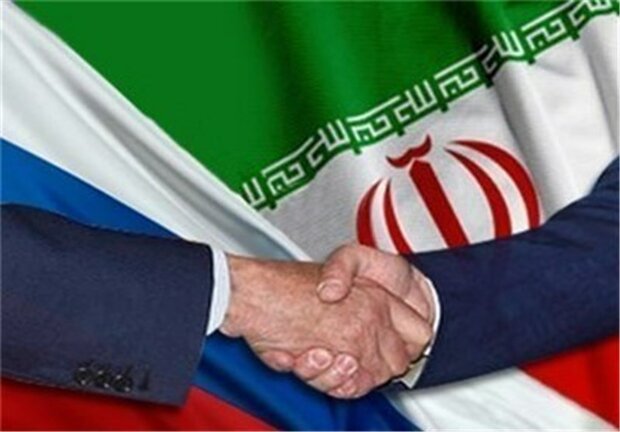
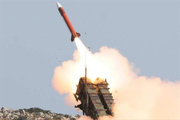

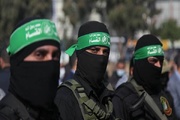
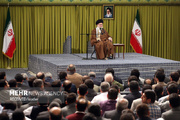


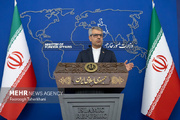
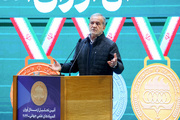
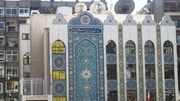
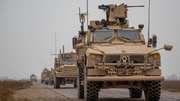



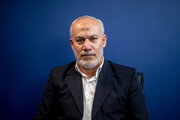


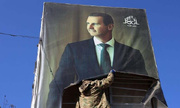

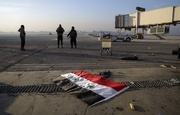

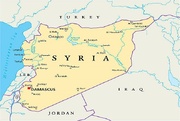
Your Comment